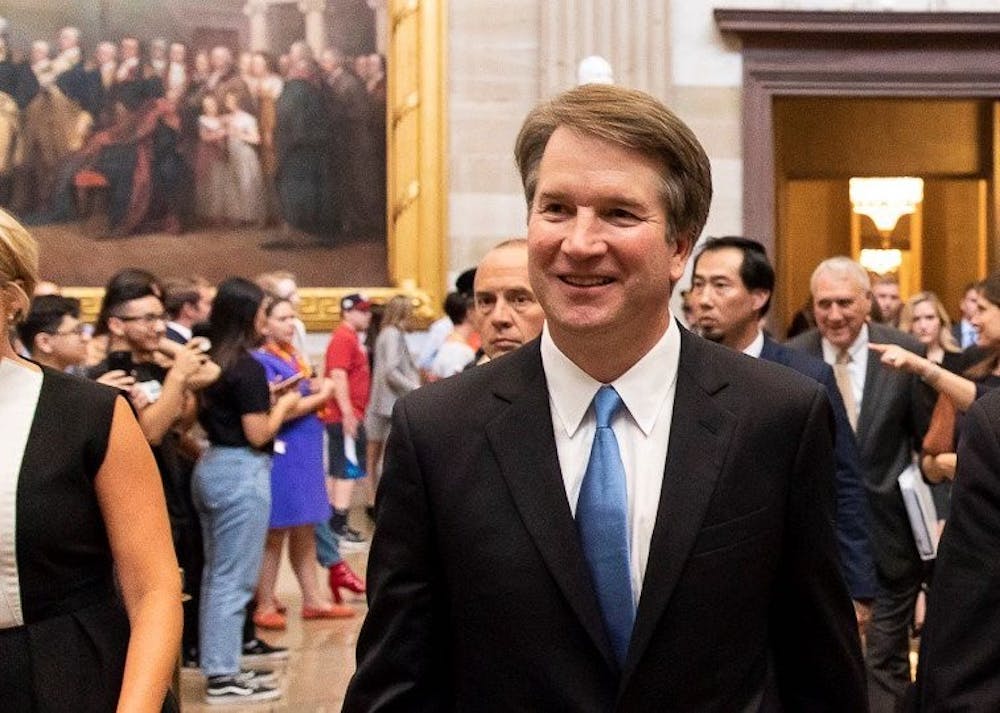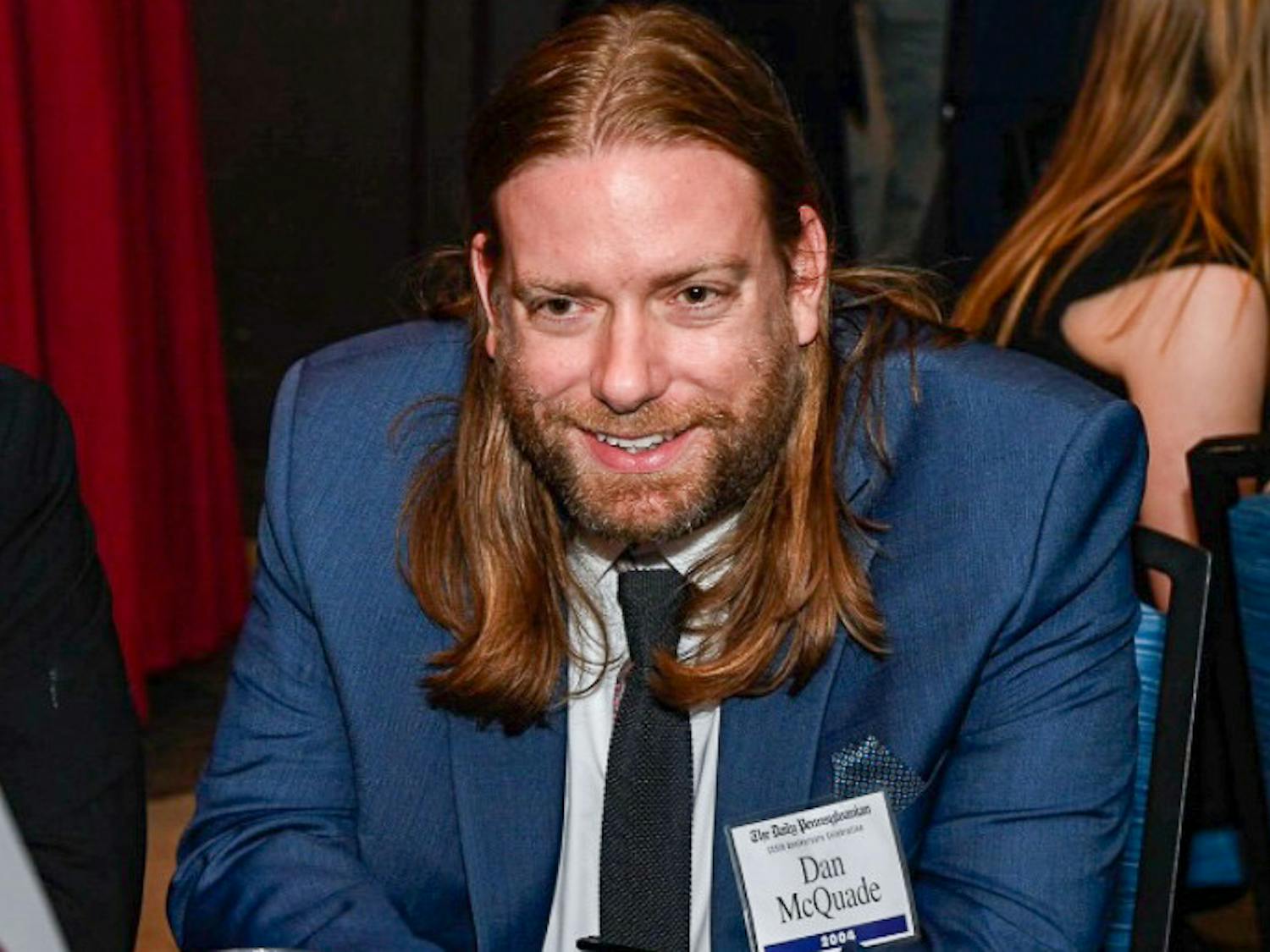As more federal investigations launch to look into the role race plays in admissions policies, many say Penn and other academic institutions are facing an uncertain future with regard to their admissions practices. With Judge Brett Kavanaugh's recent confirmation to the Supreme Court, the threat to university admissions policies could be even more imminent.
Dean of Admissions Eric Furda has maintained that regardless of the threats of a Department of Justice investigation or of a loss of federal funding, Penn will remain steadfast in its current admissions policies until the law dictates otherwise. He added that Penn does not discriminate against any racial, religious, or ethnic group of applicants in the admissions process.
“I think the basic tenet here needs to be that we’re going to follow the law,” Furda said at the time. “And until the law changes, we’re going to do what we feel has been legal, ethical, and in the educational benefit of all of our students.”
But the change, Furda said, could be quite soon. He said he believes the U.S. Supreme Court will soon arrive at a decision against affirmative action policies. Furda said that within two years, admissions officers across the country may be facing a very different admissions process.
“If you just play out the normal course of what the docket will look like, it could be within the two-year period that this decision is actually made,” Furda said. “I think a lot of people sitting in my seat are already thinking about what the world will look like if the Supreme Court, unlike the decisions that have been made up to this point, says race cannot be used in the admissions process.”
Penn Law professor Kermit Roosevelt, who studies constitutional law, said that he expects the laws to change and that affirmative action’s fate was sealed with Judge Brett Kavanaugh’s nomination — and now confirmation — to the U.S. Supreme Court.
“If you have Kavanaugh on the Supreme Court replacing Kennedy, then yeah, I do think [Harvard will lose],” Roosevelt said. “Not because Harvard was doing anything wrong under current law, but because the Supreme Court is going to change its interpretation.”

RELATED:
Penn defends affirmative action policies as Harvard lawsuit heats up
Penn Law prof. Amy Wax on Brett Kavanaugh allegations: ‘It’s too late, Ms. Ford’
Jessica Li | I don’t support the Harvard affirmative action lawsuit
Yale University will be the next collegiate institution to face federal investigation for allegedly discriminating against Asian-American applicants through its race-conscious admissions policies. The announcement of the investigation came almost a week before the ruling that the lawsuit alleging that Harvard University discriminates against Asian American applicants must proceed to trial.
The investigation into Yale’s admissions policies was based on a complaint filed in 2016 by a group of Asian-American organizations led by the Asian American Coalition for Education. Similar to Harvard, it was alleged that Yale, Brown University, and Dartmouth College illegally discriminated against Asian-American applicants by holding them to a higher standard than students of other races and using an illegal quota to limit the number of admitted Asian-American students.
The Trump administration has cited this issue as critical, but Kavanaugh, too, has hinted where he stands on the issue. In fact, civil rights advocates have said Kavanaugh could be the Supreme Court's conservative vote that curtails affirmative action in college admissions.
While Kavanaugh has recruited minority clerks and has condemned racism, he is known for building arguments against affirmative action, reported The Wall Street Journal. Many point to Kavanaugh's description of a government program for Native Hawaiians in 1999, when he wrote in a newspaper column that "in the eyes of government, we are just one race." In 2003, Kavanaugh — who was then an associate counsel to former President George W. Bush — also wrote in an email to a Wall Street Journal journalist that he sees no contradiction in encouraging diversity of judicial nominees while opposing affirmative action.
"Diversity is a permissible goal but a state must use race-neutral criteria when available," Kavanaugh wrote.
During the confirmation hearings, Kavanaugh dodged questions on affirmative action, saying that it would be "improper" to express his views on "cases or issues that might come before [him]."
Roosevelt said affirmative action policies and discrimination are often conflated, such as in the Harvard case and ongoing investigations. However, the two issues, he said, are in fact mutually exclusive.
“There’s no connection between the discrimination of Asians and affirmative action, those are totally separate — you could have one without the other,” Roosevelt said. “The reason that this case is being brought is that people try to connect them in the public mind, but there is absolutely no connection between them.”
At Penn, the Asian Pacific Student Coalition — the umbrella organization for the 23 Asian constituent groups on campus — upholds the merits of affirmative action admissions policies and believes race is an important factor of consideration in college admissions.
“While affirmative action has been said to disadvantage certain communities of privileged and high-achieving Asian-American applicants, it has helped many marginalized and underrepresented API students, including Southeast Asian students,” Chair of APSC and College and Wharton senior Soomin Shin wrote on behalf of the organization.
Shin added that affirmative action as a whole is used to promote diversity on campus and is not a tool specifically used to discriminate against certain applicants, including Asian-American students.









